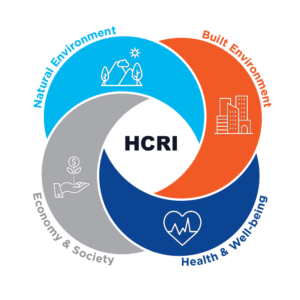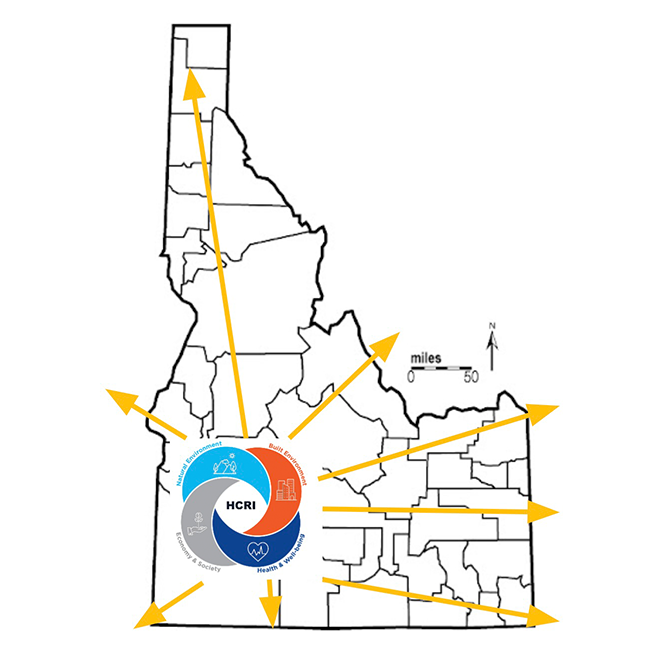Our Mission
The Hazard and Climate Resilience Institute (HCRI) supports communities to identify risks and solutions to build long-term resilience.
OUR PILLARS
The HCRI research pillars capture the interconnection between and amongst disciplines, highlighting the dynamic and multifaceted nature of community resilience.
Our goal in promoting these pillars is to foster connections and collaborations between disciplines and across sectors.

Objectives and Activities

We are building the HCRI into a resilience hub for Idaho and beyond through the implementation of seven key objectives. They are described in detail below and include an overview of each objective and specific activities that fall under them.
- Lead community-based resilience assessments and resilience strategies
Details about Objective 1
- Develop tools with and for planners and decision makers
Details about Objective 2 - Foster Community and Connections
Details about Objective 3 - Address data gaps and research needs
Details about Objective 4 - Create evidence-based public hazard and education strategies
Details about Objective 5 - Offer diverse education and research opportunities for Boise State students across all disciplines
Details about Objective 6 - Acquire an array of resources and funding to support a sustainable institute
Details about Objective 7